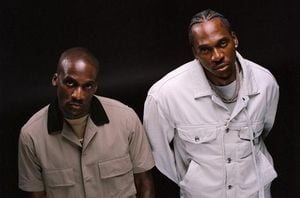On May 7, 2025, Russia celebrates Radio Day, a significant occasion honoring the invention of radio by Alexander Popov, who made his groundbreaking demonstration of wireless communication on this very date in 1895. This year marks the 130th anniversary of that pivotal moment in history, which laid the groundwork for modern telecommunications.
Radio Day is not just a celebration of the technology itself but also an acknowledgment of the professionals who work tirelessly in the communication and broadcasting sectors. The holiday was first officially celebrated in the USSR on May 7, 1925, during the 30th anniversary of Popov's invention. In 1945, the Soviet government established the date as an annual celebration, recognizing the crucial role radio played during and after World War II as a primary means of information dissemination.
Throughout the years, Radio Day has evolved, reflecting advancements in technology and changes in communication practices. Today, it encompasses various forms of media, including television and the internet, but the essence of the day remains rooted in honoring the legacy of Alexander Popov. His contributions to the field were recognized by Patriarch Kirill in 2016 during the VII International Festival "Faith and Word," where he praised the work of Radio Vera, a station that embodies Popov's spirit of communication.
Radio Vera, which broadcasts in over 50 cities across Russia, is a project initiated by a group of dedicated Orthodox Christians and has received the blessing of the Russian Orthodox Church. The station is unique in that it operates without advertisements, relying solely on donations to fund its activities. This commitment to providing uncommercialized content resonates with the values of community and faith, providing listeners with programs that include church calendars, Gospel interpretations, and discussions on family values and child-rearing.
In Yakutia, Radio Day was celebrated with particular fervor, where communications workers were honored with state and departmental awards for their contributions to the region. The Deputy Chairman of the Yakutia government, Anatoly Semyonov, highlighted the importance of telecommunications professionals in both historical and contemporary contexts. He paid tribute to industry veterans, including Nikolai Volkov, who helped establish communication lines during the war, and recognized the efforts of modern specialists involved in current military operations.
Yakutia has made remarkable progress in telecommunications, achieving 99% access to cellular services and the internet for its population. The region has laid down an impressive 14,500 kilometers of fiber-optic lines, significantly enhancing connectivity for its residents. Miroslav Borisov, a communications engineer from ArktikTelekom, was awarded the annual State Prize of Yakutia for his work in advancing communication technologies, including the "Electronic Yakutia" program and the transition to digital broadcasting.
As Radio Day unfolds, students across Russia also partake in the celebrations, particularly in Yekaterinburg, where it has become a tradition to wash the monument of Alexander Popov. This ritual not only honors the inventor but also serves as a reminder of the ongoing importance of radio in education and culture. In Tomsk, students throw old electrical equipment from dormitory windows to symbolize the triumph of technology, while also participating in a student festival known as "RadioBOOM." These customs reflect a blend of respect for tradition and a recognition of the evolving nature of communication.
The impact of radio, however, extends beyond just celebrations and traditions. It remains a vital source of information and entertainment in the digital age, adapting to the preferences of modern audiences. While traditional radio receivers may be less common, many listeners now tune in through mobile devices, computers, and smart speakers. Radio stations are increasingly tailoring their content to include music, entertainment, news updates, and weather forecasts, ensuring they remain relevant in a fast-paced world.
Internationally, Radio Day is also recognized on February 13, a date established in 2012 to commemorate the founding of the United Nations Radio. This global observance serves to highlight the role of radio in fostering communication and understanding across cultures, reinforcing the idea that radio continues to be a powerful tool for connection.
As we celebrate Radio Day this year, it is essential to reflect on the journey of radio from its inception with Popov to its current status as a multifaceted medium. The day serves as a reminder of the importance of communication in our lives and the ongoing efforts of countless individuals who work behind the scenes to keep us connected. Whether through traditional broadcasts or modern digital platforms, the spirit of radio lives on, continually evolving to meet the needs of society.
In conclusion, Radio Day is more than just a commemoration of a historical invention; it is a celebration of the ongoing legacy of communication, the professionals who dedicate their lives to this field, and the communities that rely on these connections. As we honor Alexander Popov's contributions, we also look forward to the future of radio and its role in shaping our world.




